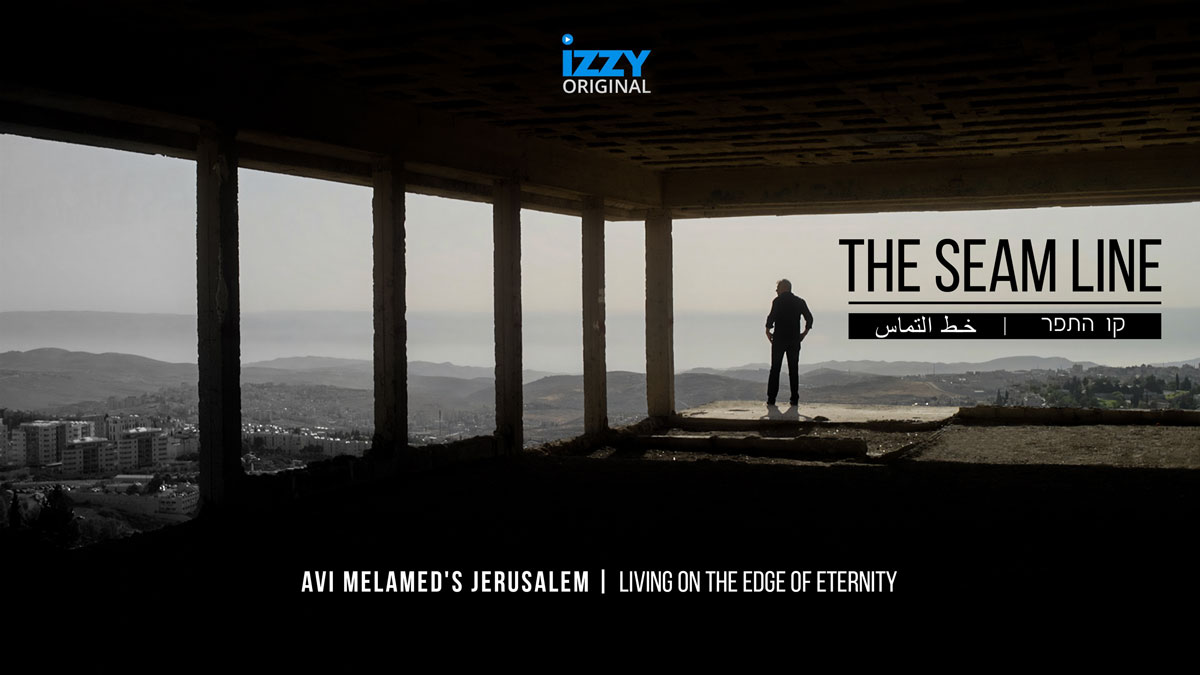|
Getting your Trinity Audio player ready...
|
Is Trump’s Gaza gamble ‘morally bankrupt’ or bold? | Avi Melamed quoted in this article by Andrew Tillett | Published in the Australian Financial Review.
However, Avi Melamed, a former Israeli intelligence official turned commentator, says Trump’s proposal may have some appeal.
“While international voices, presenting themselves as altruistic and standing in support of the symbolic Palestinian cause, they are in fact calling for the people of Gaza’s continued imprisonment in a land of total devastation,” he says.
“Many of Gaza’s people, faced with the truth of their circumstances, welcome a different pathway forward, be it under US rule or in another country.
“While public rhetoric rejecting Trump’s framework across the Middle East seems to follow the predictable public rejections, it is likely that many US allies are seeing a dramatic shifting of the sands that isn’t unwelcome, further restricting Hamas and those that support it while setting the stage for regional stability.”
On the same day Donald Trump declared he wanted to take over Gaza, he reinstated the campaign of “maximum pressure” to stop Iran acquiring a nuclear bomb, while the Pentagon began drafting plans to withdraw hundreds of US troops from Syria.
It’s enough to induce whiplash for even the most ardent America Firster; the US president seems torn between his competing instincts of US isolationism, getting tough with the Mullahs and real estate wheeling and dealing.
Trump’s plan would dramatically rewrite the Middle East map, angered America’s close partners in the Arab world and sparked accusations of ethnic cleansing.
The plan would kill off the two-state solution for the creation of an independent Palestine, which enjoys near international consensus as the best way to bring peace.
Details for Trump’s “Riviera of the Middle East” are deliberately sketchy – they wouldn’t even fit on the back of bar coaster – and confusing. It is illegal under international law to forcibly remove a civilian population from an occupied territory.
At this week’s joint press conference in Washington with Israeli Prime Minister Benjamin Netanyahu, Trump implied Gaza would be permanently emptied of its 2.2 million Palestinians and left open the prospect of deploying US troops to keep the peace.
White House officials then scrambled to clarify that Palestinians’ exile would only be temporary while Gaza was rebuilt.
In a post to his Truth Social account on Thursday (Friday AEDT) suggested there would be no reason for Gazans to return, as they “would have already been resettled in far safer and more beautiful communities, with new and modern homes, in the region”.
“No soldiers by the US would be needed”, he added, because Palestinians would have a chance to be “happy, safe, and free”.
As some commentators have pointed out, a US takeover would also give it access to Gaza’s offshore gas and oilfields in the Mediterranean. These were worth $US524 billion, in 2017 prices, according to a 2019 United Nations study.
While Trump’s plan was greeted widely with scepticism and opposition, Netanyahu and his right-wing government gleefully seized on it, with Israel’s army planning the “voluntary” departure of Gazans.
“The Trump plan is the first idea I’ve heard that’s good. The idea of allowing Gazans who want it to leave – what’s the problem with that?” Netanyahu said in an interview with Fox News.
The problem is: there is nowhere for the Gazans to go. Trump and Netanyahu are not offering to relocate the Gazans to the West Bank, where almost three million Palestinians live, and neighbouring Arab countries don’t want them.
Egypt and Jordan, identified by Trump as destinations for Gazans, have flatly refused the idea. They worry the influx of refugees, including terrorist sympathisers and Islamic hardliners, would foster internal tensions.
Both countries warn that the transfer of Gazans would jeopardise their US-brokered peace treaties with Israel.
In particular, a destabilised Jordan – which shares a near-500km border with the Jewish state – would be counterproductive to Israel’s security. Jordan helped shoot down Iranian missiles last year, while it has also been an important buffer shielding Israel from hostile forces in Iraq and Iran.
The Persian Gulf’s biggest economy, Saudi Arabia, also repudiated the plan, saying it cannot normalise relations with Israel in the absence of a Palestinian state.
That normalisation between the Saudis and Israelis is one of Trump’s big foreign policy goals, unfinished business from his first term.
The Biden administration came close to striking a deal. A desire to stop that deal was one of terror group Hamas’ motivations for its October 7, 2023, attack on southern Israel that triggered the conflict.
‘Morally bankrupt and sheer lunacy’
But with Trump, you also have to look at the business hustle – his son-in-law Jared Kushner (who is Jewish) has been cultivating business ties with the Saudis and his private equity investment fund received $US2 million ($3.2 million) from the kingdom’s sovereign wealth fund.
Steven Cook, a senior fellow with US think tank the Council on Foreign Relations, says Trump’s proposal is “not just morally bankrupt – it is sheer lunacy” that will shatter normalisation between Israel and its Arab neighbours and re-empower a vulnerable Iran.
“The danger here is that in response to the well-deserved storm of criticism, Trump feels the need to prove everyone else wrong and make ethnic cleansing and neocolonialism a policy of the United States in the Middle East,” Cook wrote in Foreign Policy.
“What makes Trump’s proposal so wildly irrational is that it undermines everything he says he wants to do in the Middle East.
“It would also entangle the United States in a regional conflict – an outcome no one wants, especially Trump, or at least that is what he has told his legion of devoted followers.
“In just one press conference, Trump undermined US credibility and added more uncertainty and instability to a region that has experienced too much of both.”
However, Avi Melamed, a former Israeli intelligence official turned commentator, says Trump’s proposal may have some appeal.
“While international voices, presenting themselves as altruistic and standing in support of the symbolic Palestinian cause, they are in fact calling for the people of Gaza’s continued imprisonment in a land of total devastation,” he says.
“Many of Gaza’s people, faced with the truth of their circumstances, welcome a different pathway forward, be it under US rule or in another country.
“While public rhetoric rejecting Trump’s framework across the Middle East seems to follow the predictable public rejections, it is likely that many US allies are seeing a dramatic shifting of the sands that isn’t unwelcome, further restricting Hamas and those that support it while setting the stage for regional stability.”
While Trump makes outlandish declarations, a kernel of truth can often be found in them. His description of Gaza as a “hellhole” requiring significant reconstruction is not far from the mark.
The United Nations estimates Israel’s heavy bombing campaign has caused $US18.5 billion of damage to buildings and infrastructure. It will take 21 years to clear 50 million tonnes of rubble, some of it tainted with asbestos and unexploded bombs, while rebuilding homes will take at least until 2040. More than half of the enclave’s agricultural land has also been degraded.
Iran moves swamped by Mar-a-Gaza
While Trump made global headlines with his Gaza gamble, he also turned his attention to Iran, renewing his first term approach of “maximum pressure” to curtail Tehran’s nuclear weapon ambitions and counter its “malign influence abroad”.
Again it was short of details, but Trump zeroed in on cutting Iran’s oil exports to zero as a way to starve the regime of funding.
Behnam Ben Taleblu, an Iran specialist for the US-based Foundation for Defence of Democracies, says sanctions stand a significant chance of putting Tehran’s theocrats under pressure if vigorously enforced and scaled up to target how the country skirted sanctions under Biden via illicit oil, petrochemical, iron, gold, and industrial metal exports.
“On the one hand, the Islamic Republic is closer than ever to a nuclear weapons capacity than ever before. But on the other, it is considerably weaker militarily, in the region, and domestically,” he tells AFR Weekend.
“The Islamic Republic and its constellation of terror proxies known as the Axis of Resistance are down, but not out.
“To that end, Iran is seeking negotiations with Trump, a remarkable about-face from its position under the first term of the Trump administration, not to peacefully resolve the nuclear drama but to buy time to rebuild both itself and its proxies while delaying the onset of maximum economic pressure and multilateral diplomatic pressure.”
What is fascinating to watch is how Trump’s fixation with finding peace in our time in the Middle East stands in contrast to his promise not to enmesh the US in foreign wars.
Standing too close to the Middle East fire invariably sees US presidents get burned.
Ceasefire talks enter tricky phase
One good thing Trump’s plan does do is refocus attention on the so-called “day after” for Gaza – what happens once the fighting stops.
As the fragile ceasefire holds, negotiators for Israel and Hamas are expected to begin talks over the weekend for the second phase of the agreement.
Until Trump’s bombshell, long-term plans for Gaza’s future were coalescing around the idea that the oil-rich Gulf states: most notably Saudi Arabia, Qatar and United Arab Emirates, would take on the burden of reconstruction.
The backbone of an international security force was going to be drawn from Arab nations, although Western peacekeepers could also be enlisted. A rejuvenated Palestinian Authority would be put in charge of the strip, with no role for Hamas in governance.
But no firm commitment had been coming. Trump’s plan can be viewed as an ambit claim to nudge the region off the fence. He also has the power of US funding to Jordan and Egypt to strong-arm those countries into playing ball.
“The fact that nobody has a realistic solution, and he puts some very bold, fresh, new ideas out on the table, I don’t think should be criticised in any way,” said US National Security Adviser Mike Waltz.
“It’s going to bring the entire region to come up with their own solutions if they don’t like Mr Trump’s solution.”
Is Trump’s Gaza gamble ‘morally bankrupt’ or bold? | Avi Melamed quoted in this article by Andrew Tillett | Published in the Australian Financial Review.
Follow me on Twitter @AviMelamed; Facebook @InsideTheMiddleEast; for more Videos on YouTube https://www.youtube.com/c/AviMelamed
“Jerusalem bridge-builder revisits intifada hot spots for new streaming series” Article by Mike Wagenheim about our latest Docuseries The SEAM LINE with Avi Melamed
Full article here in The Jewish News Syndicate

If you want to have a better understanding of the news and what really drives the unfolding events…
Read the latest book by Avi Melamed,
INSIDE THE MIDDLE EAST | ENTERING A NEW ERA, available now >>>
I can always be reached at Av*@********ed.com

































































